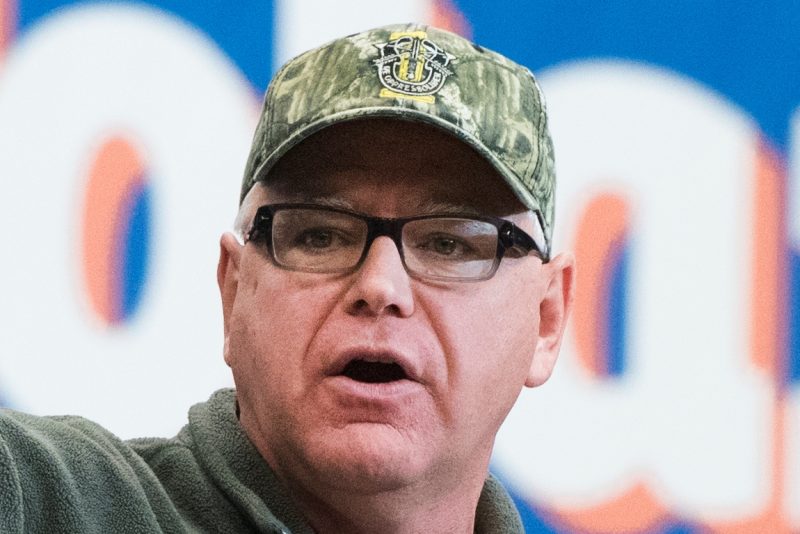In a surprising turn of events, Minnesota Governor Tim Walz underwent a significant transformation from being endorsed by the NRA to becoming a vocal advocate for gun control measures. This shift reflects a broader trend in American politics where leaders are compelled to reassess their stance on gun rights in the face of increasing gun violence and public demand for change.
Walz’s initial support from the NRA was rooted in his background as a former member of the National Guard and his rural Minnesota upbringing where hunting and gun ownership are deeply ingrained cultural traditions. However, the tide began to turn following a series of high-profile mass shootings that rocked the nation and spurred calls for stricter gun laws.
As Governor, Walz found himself in a position to address the issue of gun violence head-on, and he chose to take a more proactive approach by advocating for common-sense gun control measures. His evolution on this issue was not without its challenges, as he faced backlash from some constituents who felt betrayed by his departure from his earlier pro-gun stance.
Despite the criticism, Walz remained steadfast in his commitment to protecting the safety of Minnesotans by pushing for reforms such as universal background checks, red flag laws, and safe storage requirements for firearms. This change in stance has positioned him as a key figure in the national conversation on gun control and has garnered support from advocacy groups seeking to prevent gun violence.
Walz’s journey from being NRA-endorsed to a gun control advocate serves as a powerful example of how political leaders can evolve on contentious issues in response to changing circumstances and public sentiment. While his transition was not without its challenges, it underscores the importance of listening to constituents, evaluating evidence, and having the courage to act in the best interest of the community, even if it means diverging from past positions. As the debate over gun rights continues to unfold in the United States, leaders like Tim Walz provide a model for how policymakers can navigate these complex issues with integrity and a commitment to public safety.

